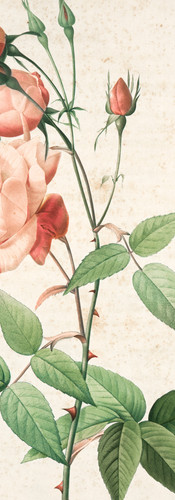
Latin Name: Rosa rubiginosa
Herb Class/Action: nervine, antioxidant, astringent, cardiotonic
Parts Used: flowers, fruit (hips)
Flavors: astringent, sweet
Energetics: cooling, drying
Traditional Benefits: mood support, heart support, musculoskeletal system support, immune system support, skin support, supports reproductive health, supports liver health, supports sexual health, healthy inflammatory response support
The rose has rich antioxidants and is soul-nourishing to become supportive to the mind and heart. It holds symbolism of strength, beauty, love, support and intamacy. The common aesthetically pleasing floral given as a gift holds a depth medicinally overlooked. The rose promotes a healthy blood flow to balance out the mind and body. Rose helps us to be gentle with ourselves and slow down so that we may see and feel what we’ve been avoiding, and finally step forward into a realm of possibility that is only available through presence and intimacy with oneself, others, and life in general.
As a symbol of romance and intimacy, Rose can help us connect to our emotions, ease distress, and bring balance to the heart. This herb is said to help get things moving—whether that’s breaking up stagnation within the womb space or helping us feel and move through our emotions.
Along with the immense exterior beauty this floral holds, the internal chemical components of the rose carry nutrients such as vitamins B, C, K, and E; flavonoids, zinc, polyphenols, magnesium, potassium, and more. Rose hips (the part of the flower just below the petals, containing the seeds) and rose petals are both used in traditional herbalism preparations.
The essential oil is extracted, the flower petals can be used fresh or dried in teas, salads, and bathwater.
Rose & Lavender Serum
by Herbal Native Co.












Comments